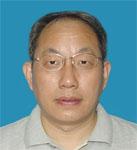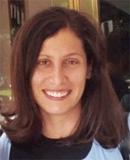FromGeneva
Thiru Balasubramaniam
January 26, 2007
The topic of of public health, innovation and intellectual property (4.14) was discussed today at the 120th Session of the WHO Executive Board. In short, the
Kenya Switzerland resolution submitted on Monday, January 22 was withdrawn by Kenya with the intention that it will be re-opened at the World Health Assembly (May 2007). Thailand proposed a draft Decision for further strengthening the IGWG process, but ultimately its status was deemed as an informal document (the Secretariat notified Thailand that for it to be considered as an offical document, it would need to be submitted in all 6 UN langages)"). What was acutely disappointing about the discussions that NGOs were not permitted to make oral interventions.
From our perspective, it remains incumbent upon the IGWG Bureau in collaboration with the WHO Member States and the WHO Secretariat to address the central question posed by WHA 59.24, namely,
securing an enhanced and sustainable basis for needs-driven, essential health research and diseases that disproportionately affect developing countries, proposing clear objectives and priorities for research and development, and estimating funding needs in this area;
(eg "Who pays for what and how").
What follows below are my notes on this morning's session.
-------------
11:30 AM
Chair (Fernando Antezana, Asesor Principal del Despacho, Ministerio de Salud Y Deportes, Bolivia):
Chair: We are going to proceed with agenda item 4.14. Public health, innovation and intellectual property.
Brazil: I have no objections to the documents prepared for this meeting. I particularly like document EB 120/4 (Matrix) which details work that the Organization will carry out and work carried out by other organizations.
Resolution 59.24 was very important in terms of its importance and content. Through this resolution and the informal consultations leading up to the passage of the resolution, we created the spirit of Geneva which was highly positive.
How was it possible for us to reach consensus in such a tranquil way. We did this in the spirit of Geneva. We hope this same "spirit of Geneva" will prevail. Unfortunately this was not the case in the first meeting of the IGWG. This did not bring honor to the WHO or to us. I'm not here to accuse anyone. The December meeting was ridiculous. I hope this will not be the end of the spirit of Geneva. I will not comment on the draft resolution now.
We need to discuss the process. How do we strengthen this?
Kenya: The attendees to the December IGWG were not happy with the process. A second meeting is scheduled for October which we are informed may be the last meeting. Kenya and Switzerland proposed and early harvest implementation. An informal meeting was held on Jan 24. There have been intense consultations afterwards. There has been consensus to strengthen work of the group.
We would like to request consideration of this resolution be postponed. We request WHO to expedite the work of the Group. The CIPIH recommendations must be thoroughly considered. We look forward to the work of the global plan of action.
Thailand: We wish the EB to focus on the process of IGWG (spirit of Geneva). We should look at the text of WHA59.24
There is no single message from the WHO Secretariat or the IG Bureau on what Member States should contribute in their official submissions Our interpretation: What should be the global plan of strategy? We need to look at 'priority setting' 'estimating funding needs'.
We feel that the end of Feb 2007 is too tight for submissions. We want a delay. We would like to thank SEARO Regional Director for holding consultations before the WHO IGWG.
Thailand takes note of progress of early implementation.
In order to keep the spirit of Geneva, some Member States felt the need to maintain and accelerate the momentum. The Board should not in any way interfere in the work of the IGWG.
We would like to propose a DECISION for consideration.
"The EB decides to request Secreariat to implement WHA59.24 at all levels by providing support to Member States in contributions by March. Synthesis....this would go to the regional mechanism in preoparation for the 2nd meeting." [TB: I missed the rest of this. I intend to get the full text later today]
Portugal (on behalf of the EU): The first session of the IGWG needs a timely and substantial follow up. We hope many States submit their contributions. The iGWG is the proper forum on this topic. In order to continue the IGWG process, we look forward to background papers from WHO Secretariat on 8 subjects including a "health gaps' matrix and a "key stakeholder" matrix. We need further clarification on the role of experts.
With respect to the WHO progress report,
The EU has taken action on (TRIPS flexiblities-compulsory licensing for medicines, clinical trials program, through full annual reports to TRIPS Council on technology transfer, fully respecting our partners' rights in including compulsory licensing in their bilateral trade agreements.
We have new funding stream for neglected diseases, ppps. Advocates cooperation between WHO, WTO, WIPO, UNCTAD and UNESCO.
We fully agree that we need a strong preparatory process.
Portugal (in name of Portugal): We have the EU presidency in the next semester. We offer our help to Member States to help facilitate the process.
United States: We share concerns of some that outcomes of the first IGWG were not as ambitious as we hoped. We need a strong preparatory process. It is not clear to me what this preparatory process should be.
Regretably, the decision of Thailand was not made to avalaible to us. We would have to study the decision It does not seem to be very specific or point a way forward.
We look forward to receiving the June document. I'm not sure what "regional mechanisms" mean. Does this imply special consultations or regional committees? This is a little vague. Is Thailand prepared to elaborate on this? We need to see the document in writing as on official doucment of the board. Can the WHO Legal Advisor provide guidance on what role the EB has on the IGWG (WHA59.24 requires IGWG to report to WHA through EB). A formal Decision may not be necessary. EB members may just submit views to the Boardand the DG can respond accordingly.
Chair on behalf of Bolivia: This is a very important and delicate issue. It may be premature to consider a resolution now.
Namibia: Discussion on this will not be prolonged. I would like to note that without limiting Member State interventions, we are taking too much time. Our earlier understanding is not being respected.
Switzerland: We fully align ourselves with statement of Kenya on behalf the African Region. We also reiterate Brazil's "spirit of Geneva" plea.
Chair: NGOs cannot speak at this time.
WHO Legal Counsel: The IGWG will provide progress reports to the WHA through EB. IGWG reports through the EB. This entitles the EB discusses (if it sees fits) and points recommendations to WHA. However, the EB can't make decisions. The IGWG is asubsidiary body of the WHA. A request from EB to Secretariat facilitate process is ok. However, it can't change [TB: or do violence] to the original resolution.
US: I don't want issues of process to block forward movement. I would repeat what I said earlier; there should be some time for interested delegations to speak on the ideas (mentioned by Thailand and Portugal).
Thailand: Our document is ready to be circulated. Can we circulate it?
Chair (Secretariat official interrupts to tell Chair Antezana to tell him something about "translations")
Secretariat (ZUCKER) presents an 11 point plan including:
Look forward to Feb comments (including on experts)
Paper ready by July
In house task groups in HQ and regional offices
DG consultation with Bureau will identify pool of experts.
Regional consultations (Aug or Sept) and will identify experts.
IGWG final session Oct 07.
Bureau will meet as needed
Secretairat will continue to implement CIPIH recs addressed to WHO.
WHO Sec will set up website for MS to contribute comments on a voluntary basis on how they implement
European Commission: Please include regional economic integration organizations on circulars.
Brazil: I like the language of Thailand. It could use some further crafting.
Chair: Proposal by Kenya is accepted. [TB] The Kenya/Switzerland resolution is postponed.]
Australia: Point of order. What are we doing with the Thai proposal?
Chair: The idea was to have Thailand circulate document (not as an official document).
Secretariat (Kean): It needs to be circulated in 6 languagues for EB to consider as an official document.
DG Margaret Chan: We should follow IGWG process requested by WHA. It is very welcome that EB members make suggestions and give ideas. The informal Thai paper would be one such suggestions. We will take on board all your suggestions (written or oral). I pledge support for the IGWG support as I have seen how important it is for you.




